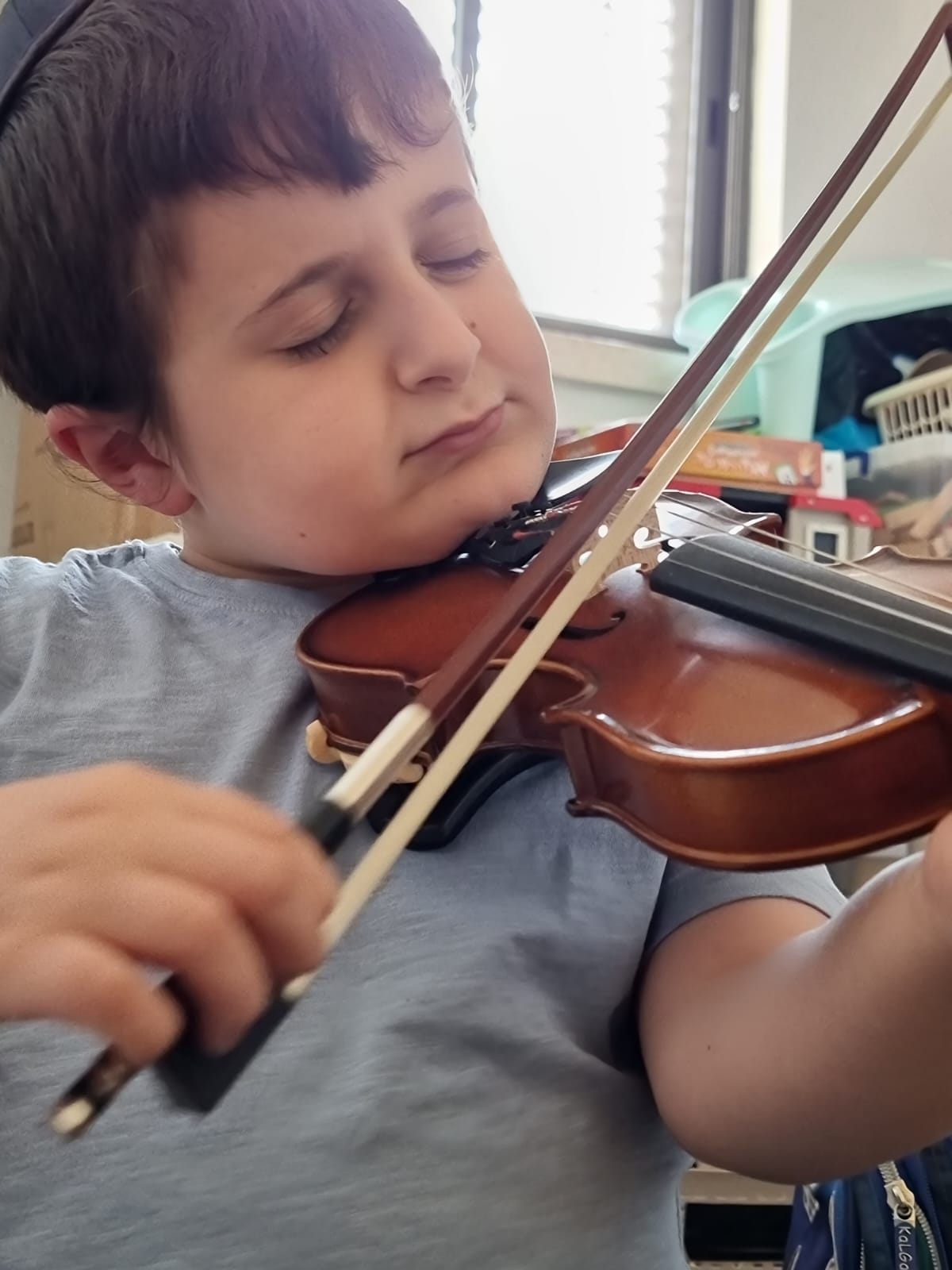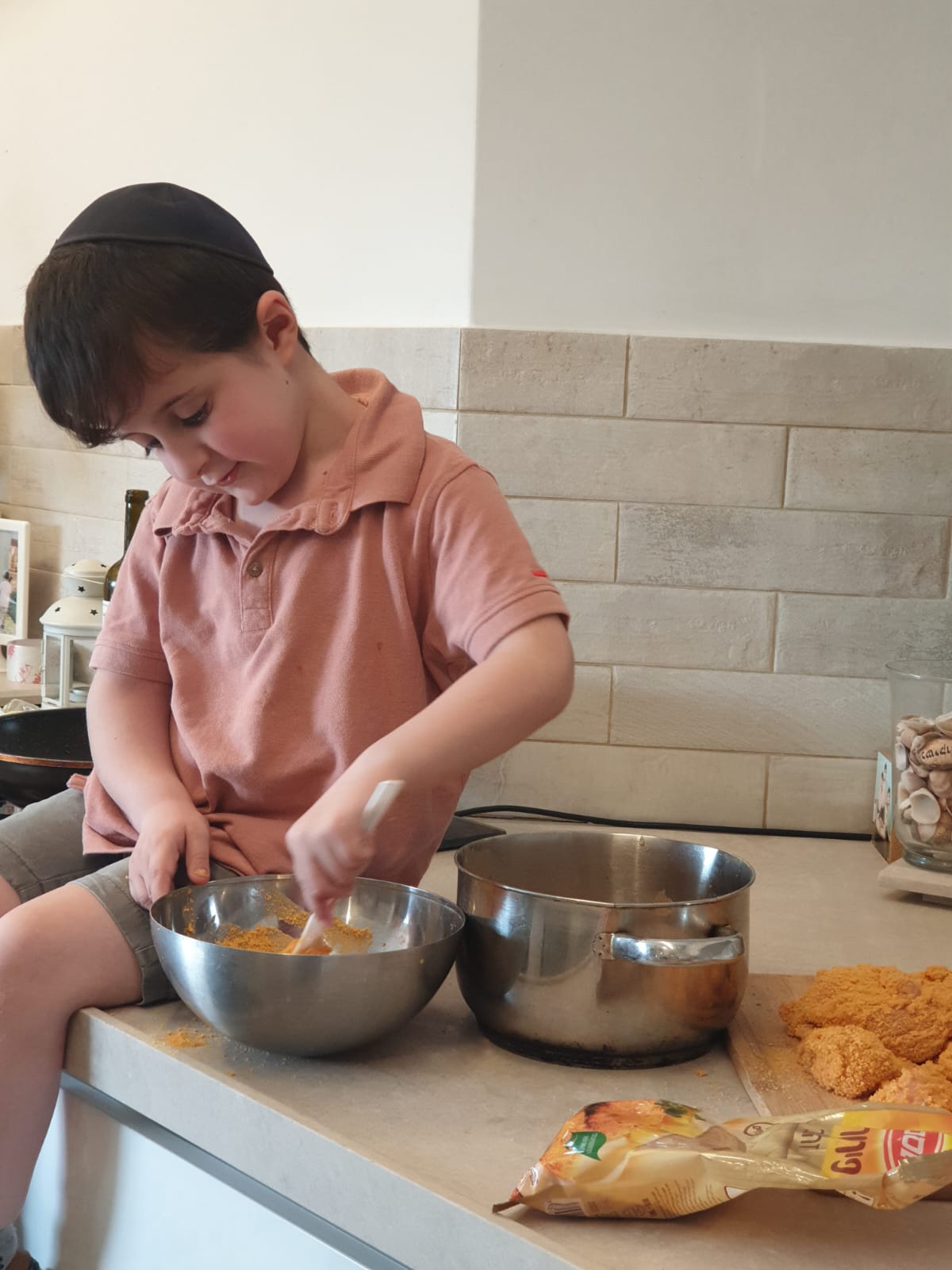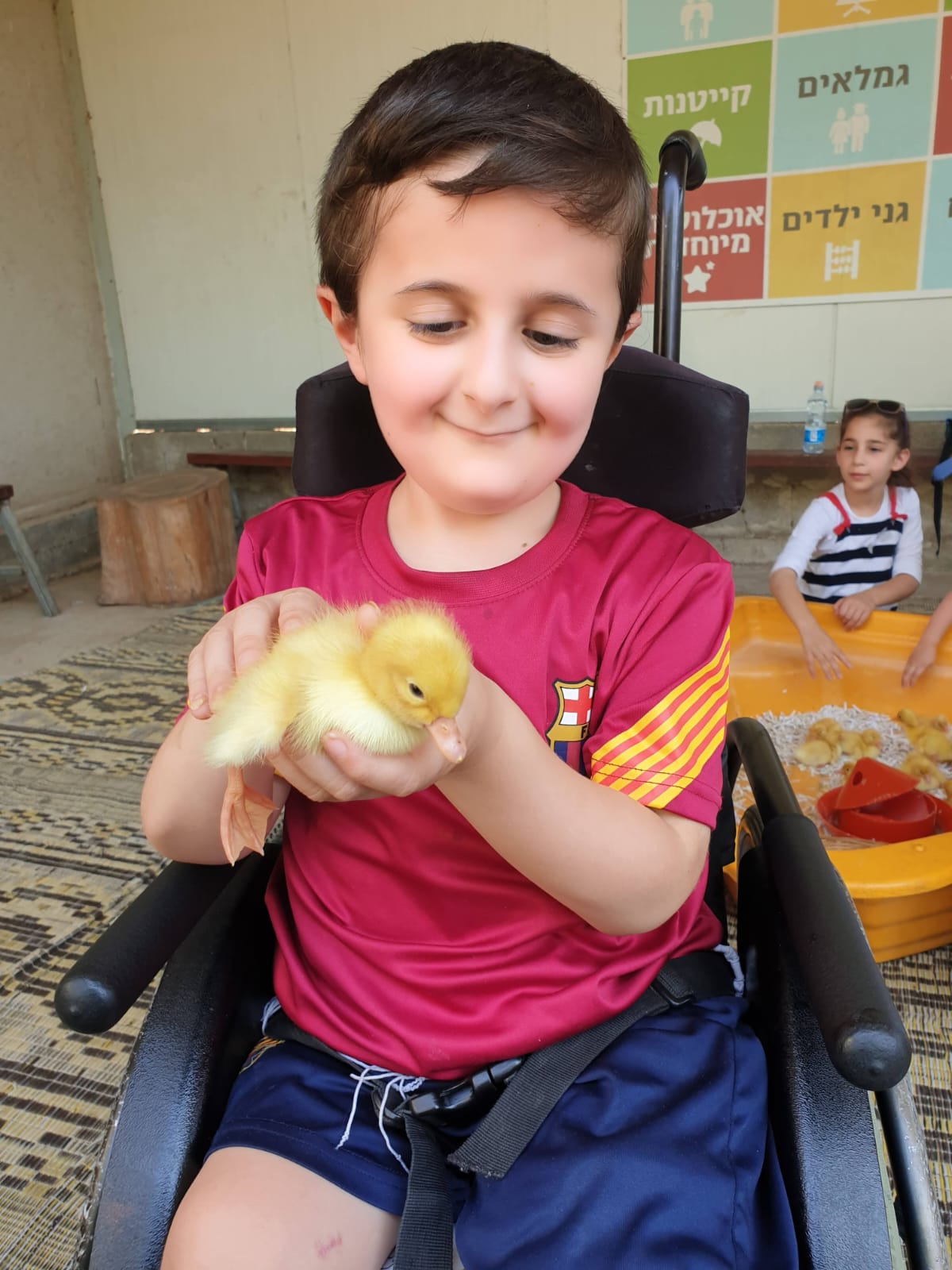"Israel Has Endured Over 80 Bone Fractures Since Birth, But That Doesn't Stop Him From Achieving Dreams"
When Nisi Goldreich gave birth to her second son, doctors informed her that he had a rare disease causing bone fractures. From that moment, she and her husband decided to give their son every opportunity for a healthy and happy life. Now, as Israel plays the violin, cooks, and excels in his studies, they're convinced: "Not only did Israel not stop our lives, but he also brought immense joy into our home."
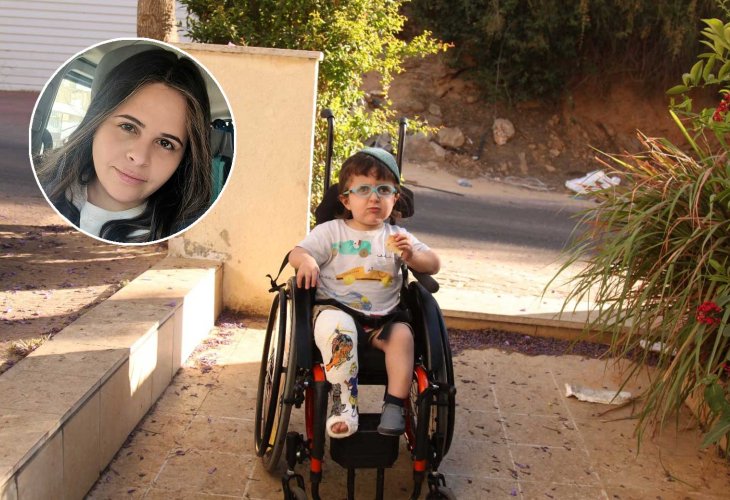 (In the circle: Nisi Goldreich)
(In the circle: Nisi Goldreich)Many women know Nisi Goldreich for her famous challah recipe, which she developed through years of research and baking experience. Thousands of women participate in WhatsApp groups where she shares cooking tips and recipes suitable for mothers with children. However, not everyone knows that Nisi began her baking and cooking journey thanks to her special son, Israel.
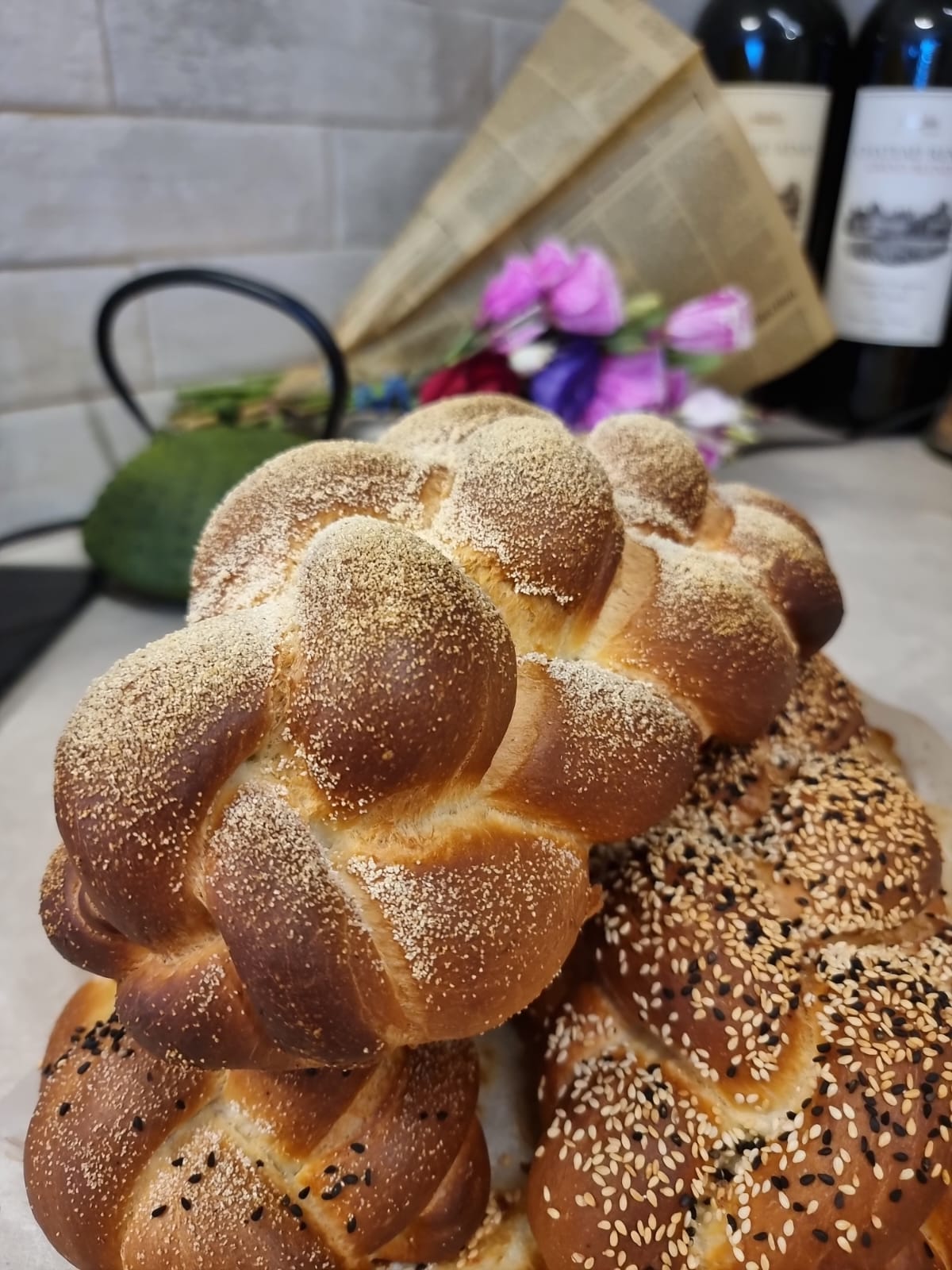
More Than 100 Fractures
"Israel was born on Shabbat early in the morning, nine and a half years ago, and since then my life has changed," shares Nisi. "My husband and I were 23 years old, with a firstborn son of a year and five months. During a late ultrasound scan, we were told the baby had deformed limbs, but we had no idea what that meant. The doctors explained they didn’t know why, but the child would likely be a dwarf and disabled, and recommended termination of pregnancy. Of course, we couldn't fathom it because we believed medicine had solutions for everything. We also consulted my husband's grandfather, Rabbi David Chaim Stern, who blessed us with major miracles and said Israel would dance at his wedding. We continued the pregnancy with hope and faith that everything would turn out well.
"The delivery was very hard, it seemed that out of fear and trauma from the pregnancy, the baby couldn’t come out. Eventually, Israel emerged into the world wailing continuously, but when I looked at him, I felt he gazed at me and calmed down, as if telling me 'Mom, be strong!'"
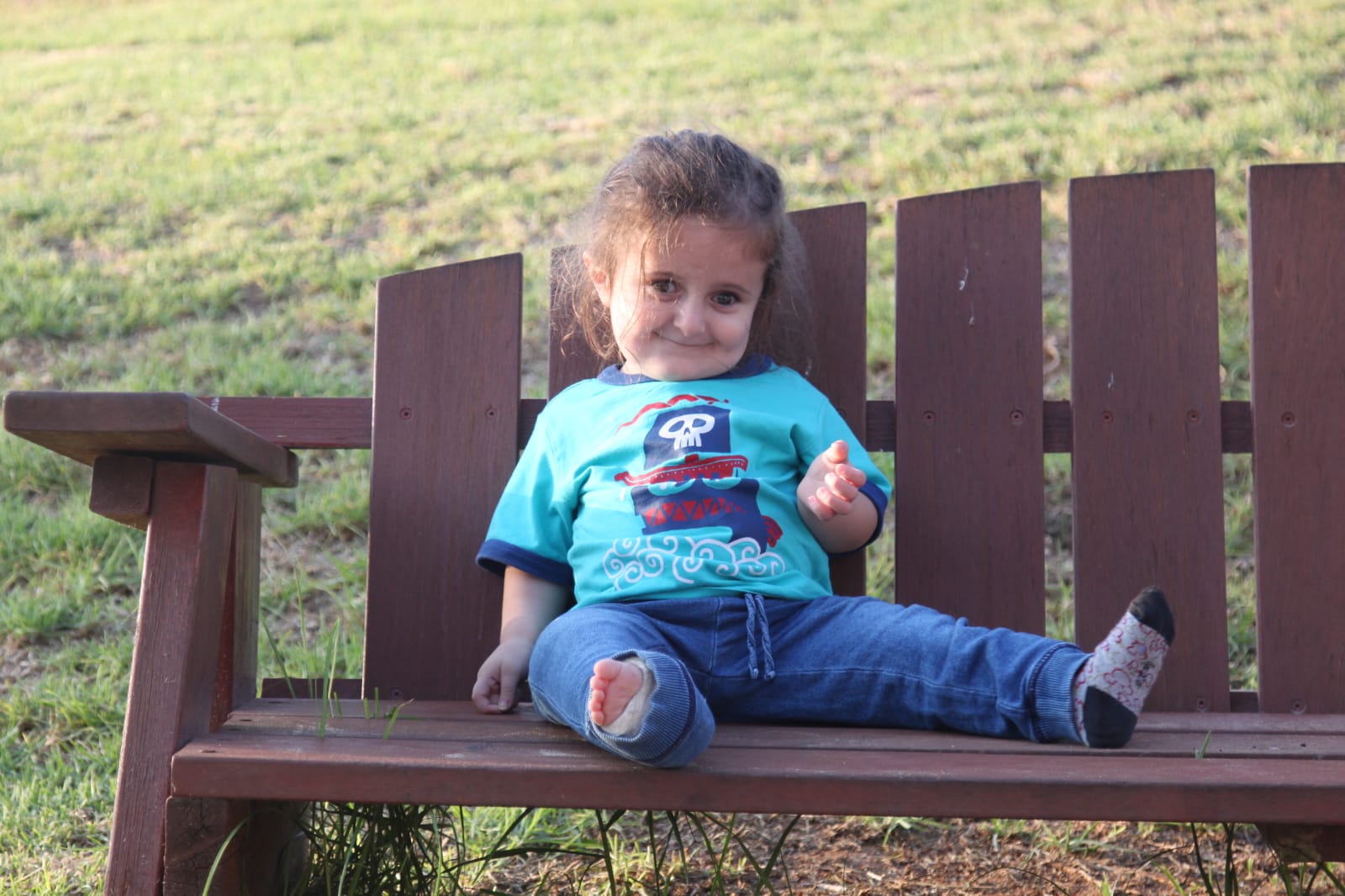
The next encounter with her newborn was only 12 hours later, in the neonatal intensive care unit. "The staff couldn’t yet explain his exact condition, only that he was undergoing a lot of tests," she explains.
On Motzei Shabbat, the department head professor sat down with Nisi and her husband. "He explained that Israel was born with a disease named 'osteogenesis imperfecta,' meaning a lack of collagen in the body, leading to multiple bone fractures," Nisi explains. "He showed us the X-rays of Israel, with bones as thin as toothpicks, noting over 100 fractures throughout his body. Just from birth, he had fractured his skull, ribs, hand, and leg. 'After the 100th fracture, we stopped counting,' the professor told us."
Nisi also witnessed Israel’s clinical state first-hand. "Israel was different from other babies," she notes, "the white of his eyes was greyish due to the collagen deficiency, and his head was soft and fluid. I felt as if I was touching a water-filled balloon, afraid that pressing too hard would reach the eye sockets."
"The doctor warned us that children in such conditions sometimes don’t survive long post-birth. But we were optimistic, believing everything would turn out for the best. Even the social worker mentioned the possibility of leaving Israel at the hospital. Of course, we couldn’t imagine that. Despite all medical predictions, we wanted to be our child’s parents and provide everything possible for him to grow healthy. We were certain that Hashem would guide us on the right path."
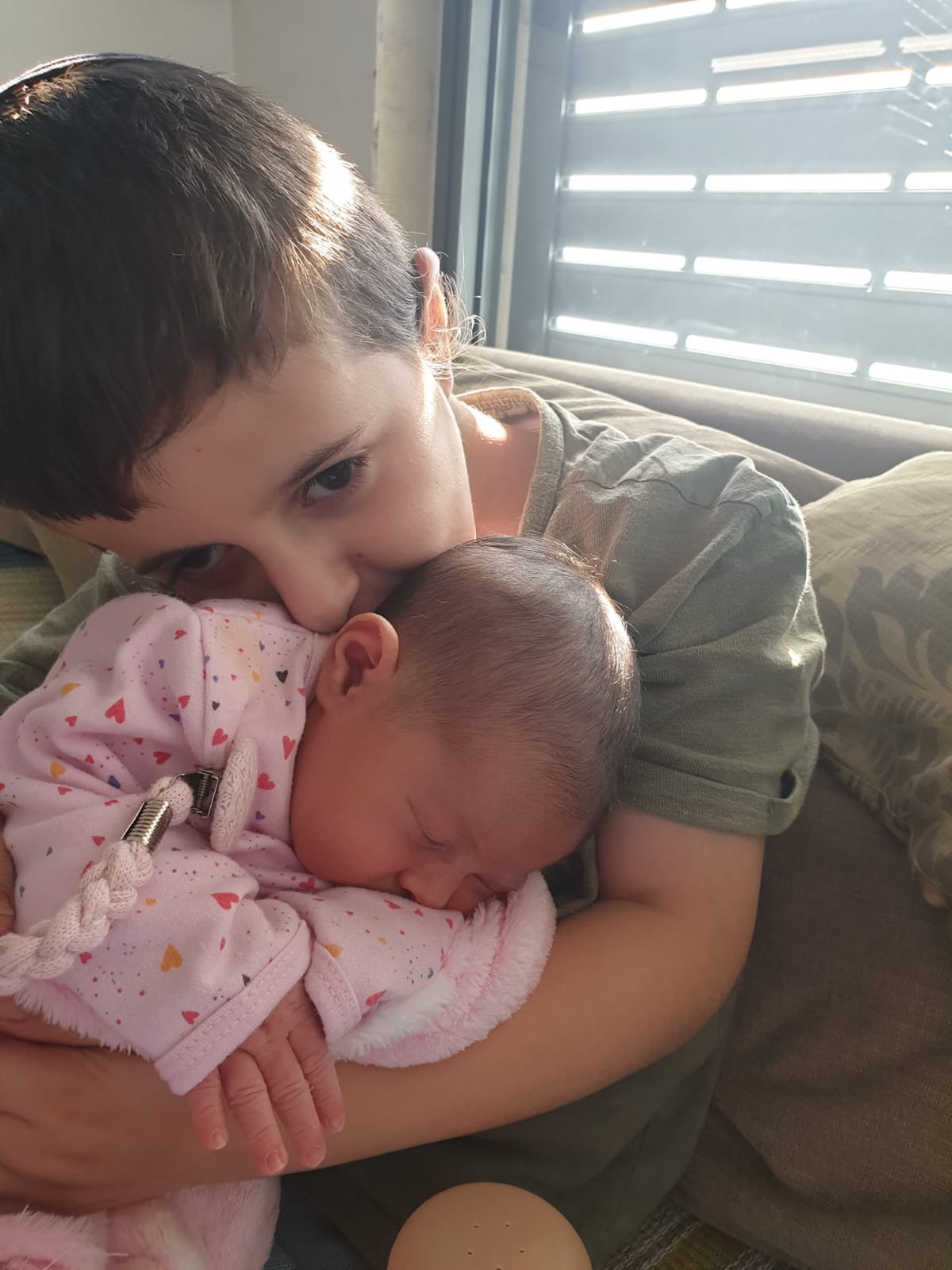
Equal Among Equals
As time passed, Nisi and her husband learned more about osteogenesis imperfecta. They began understanding the gravity and that the disease has different severity levels, with Israel having the most severe form, where affected infants often don't survive the womb. "But Hashem wanted Israel to be born," Nisi confidently states, "and despite all challenges, he simply survived everything. Within a month, most fractures healed, he gained weight, and we went home."
However, leaving the hospital was only the start of a new journey. "The day after discharge, I tried changing Israel's diaper, and he started screaming terribly," recalls Nisi. "I noticed his leg was limp and understood something was wrong. I called my husband, and we rushed to the hospital, where they diagnosed a leg fracture, eyeing us suspiciously as if suspecting child abuse. It took time for them to realize he was genuinely ill and leave us alone. A few days later, at home, I tried dressing him, and this time, his arm broke. Again, the same story at the hospital, and we had to prove we weren’t abusive parents. Eventually, we decided not to dress him at all, and despite the cold winter, Israel went around covered only with a blanket."
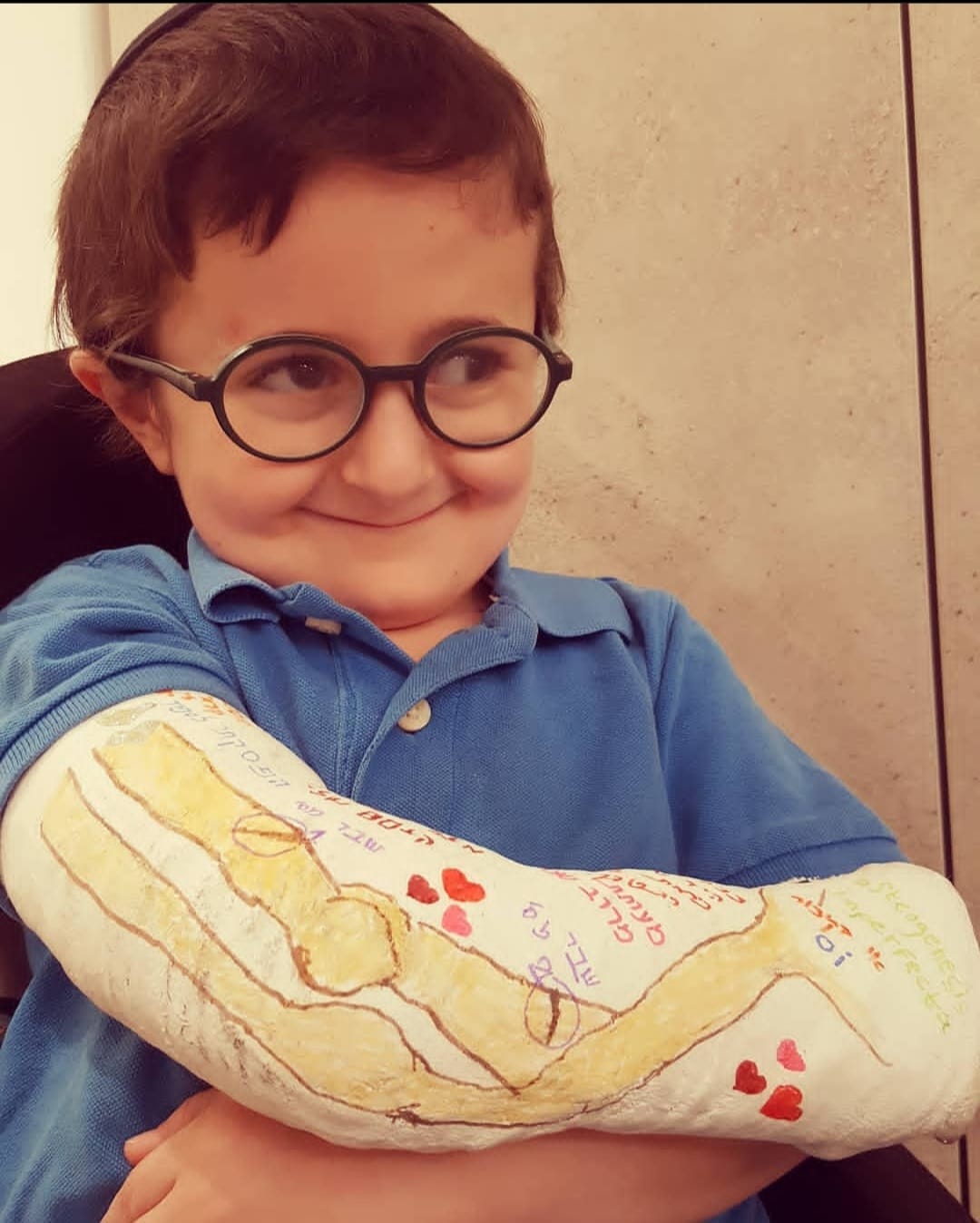
At two months old, Israel was circumcised, entering the covenant of Abraham our patriarch. "We had to wait for his medical condition to stabilize and reach over 2500 grams," Nisi explains, "at the bris, we named him 'Israel' as recommended by my husband's grandfather. Over time, I feel the strength and power in that name, as Israel is a true example of the Jewish people – despite all the pain and fractures, Israel is always happy, viewing the world through rose-colored glasses. Even in the playground when kids looked at him using a walker and sadly asked, 'Are you old?' Israel confidently replied, 'I'm not old or unfortunate,' and truly meant it. When Israel was three and received new braces after a month without them because the old ones were too small, he was overjoyed, continuously announcing, 'I have new legs, I have new legs.'
"I don’t want people to read the article and feel pity or cry, that’s not my intention," Nisi clarifies. "It’s important to understand that Israel is a regular kid. In our home, he is treated as equal among equals, with rights and responsibilities just like his siblings. This was true as he started first grade, where we debated between regular and special education. Kids like him usually attend special schools for rehabilitation, feeling equal among equals, but we saw Israel was extraordinarily smart. At five, he taught himself to read fluently. We consulted professionals, and due to his unique personality and self-confidence, they recommended integrating him into regular education. So we enrolled him in the same school as his siblings, and today, with Israel in third grade, I feel and know my son is a true asset. Kids are so open with him, and he is open and communicates everything with them. Israel has a musical soul, singing with great emotion, leaving those who hear him touched. In recent years, he's also learned to play the violin, one of his dreams—to be the first wheelchair-violinist child..."
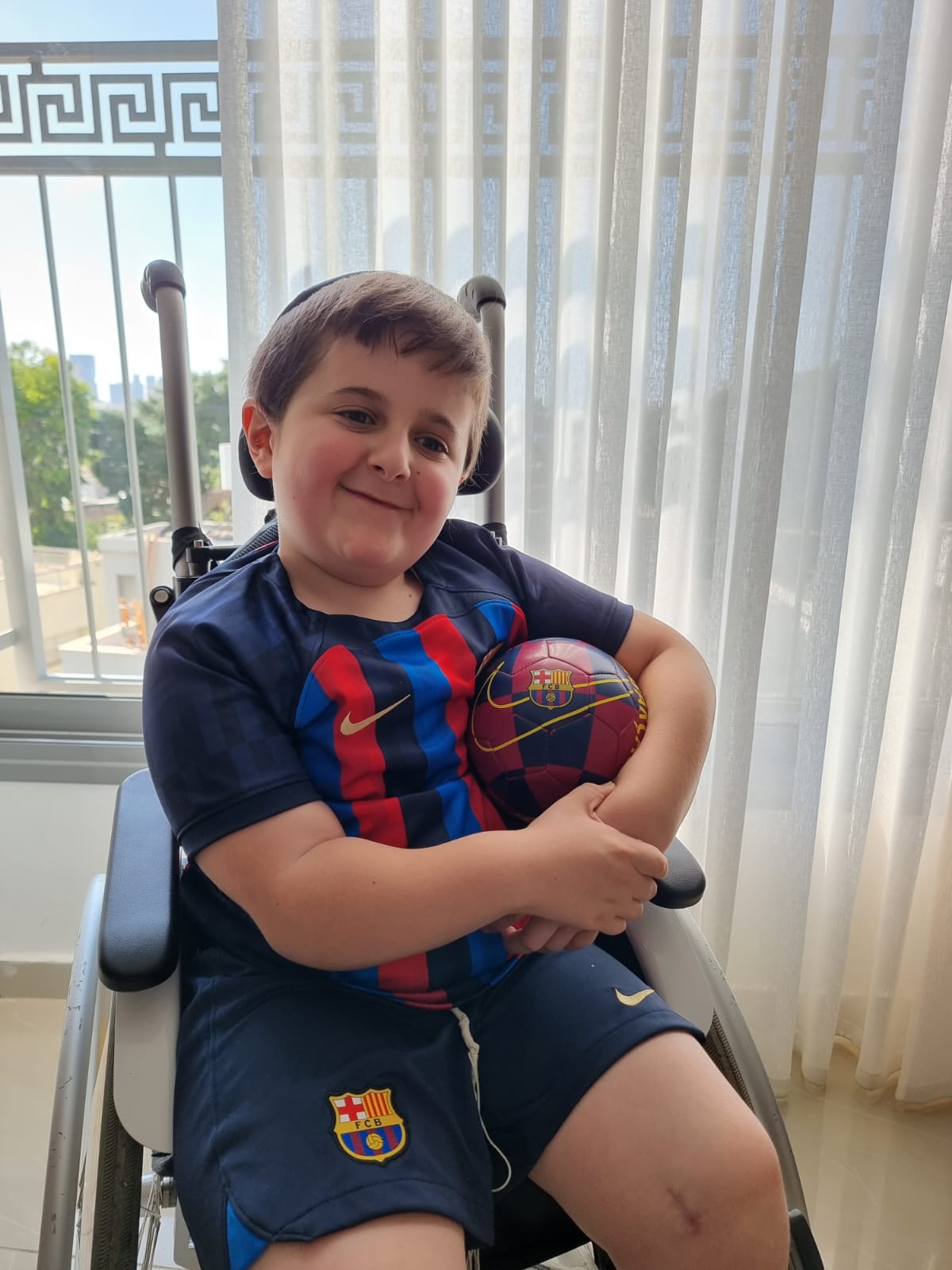
Choosing Joy
Despite trying to focus on the good, Nisi notes that it’s impossible to ignore daily challenges. "The difficulty for Israel and other kids with this illness is the feeling of 'I can do everything, but still, I shouldn't.' Israel knows physically he can get up, be rowdy, run, and jump, but it isn’t wise as it puts his body in danger. He needs a lot of maturity to watch his siblings ride bikes and run while he remains in his wheelchair.
"One evening, as his brothers jumped around, he decided to join them. I pleaded, 'Israel, it’s dangerous; you could break your legs,' to which he sweetly and maturely responded, 'Don’t worry, mom, if something happens, it’s not your fault.' Israel is willing to weigh risks, allowing himself to live life as best and happily as he can."
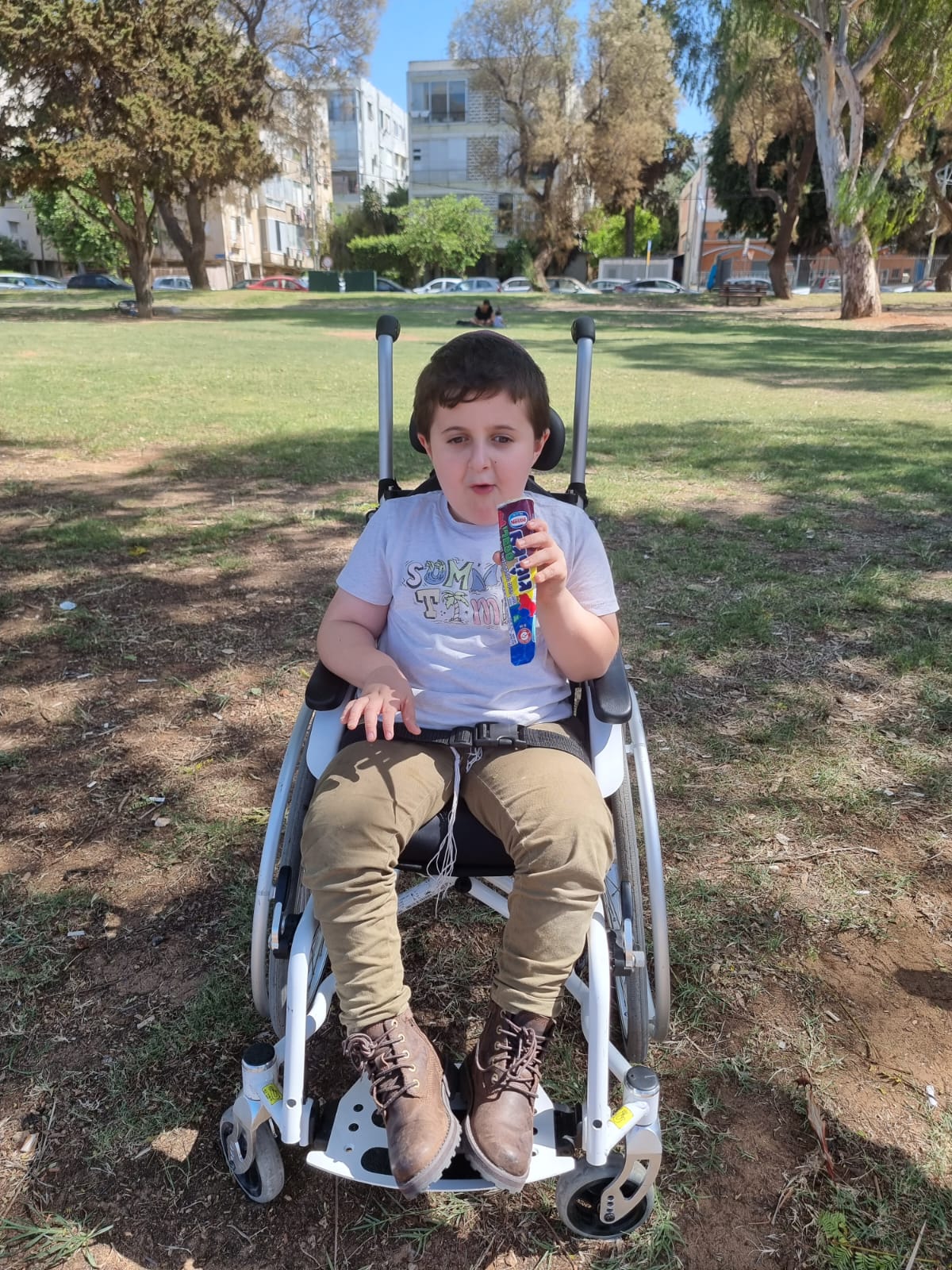
What gives you strength as a mother, during tough times?
"Initially, I blamed myself a lot, feeling I was responsible for every fracture since I was Israel’s primary caregiver. Every fracture seemed linked to a wrong movement I caused. It burdened me with a lot of guilt. But at some point, as Israel grew and fractures occurred for many other reasons, I started to understand it wasn't within my control. Israel is a child of Hashem, and only He decides what happens. Once I realized this, all the guilt disappeared, and I began to feel honored to be Israel’s mother. It’s known that before a soul descends to the world, it chooses its birth situation. That means Israel chose me as a mother and my husband as a father because he knew we could help him fulfill his purpose in the world. This understanding really strengthens me and gives me satisfaction.
"Also, there is another good thing that happened to us because of Israel," Nisi adds. "When he was born, I left my sales job and focused only on him. For a year, he was home with me, and even after starting a rehabilitation daycare, I couldn’t resume work because he frequently hospitalized for fractured bones. Sometimes, he was casted on both hands and legs, or a hand and a leg. From four months old, he began receiving bone-building medication, initially necessitating hospital stays every two months. During those times, I had the opportunity to speak with my husband’s grandfather, Rabbi Stern, and ask what else I could do for my son. One advice he gave was to commit to separating challah. I took it upon myself, and since then, we no longer buy store-bought challahs. This way, I developed my unique challah recipe, which always works, and when I heard the enthusiastic feedback from women trying it, it gave me great confidence to continue cooking and sharing recipes. So, I opened WhatsApp recipe groups and started writing recipes online. Incidentally, Israel loves the kitchen and has been my full partner from a young age, sitting beside me on the counter, putting meatballs in the pot, peeling potatoes, and truly helping a lot. These are our best moments together."
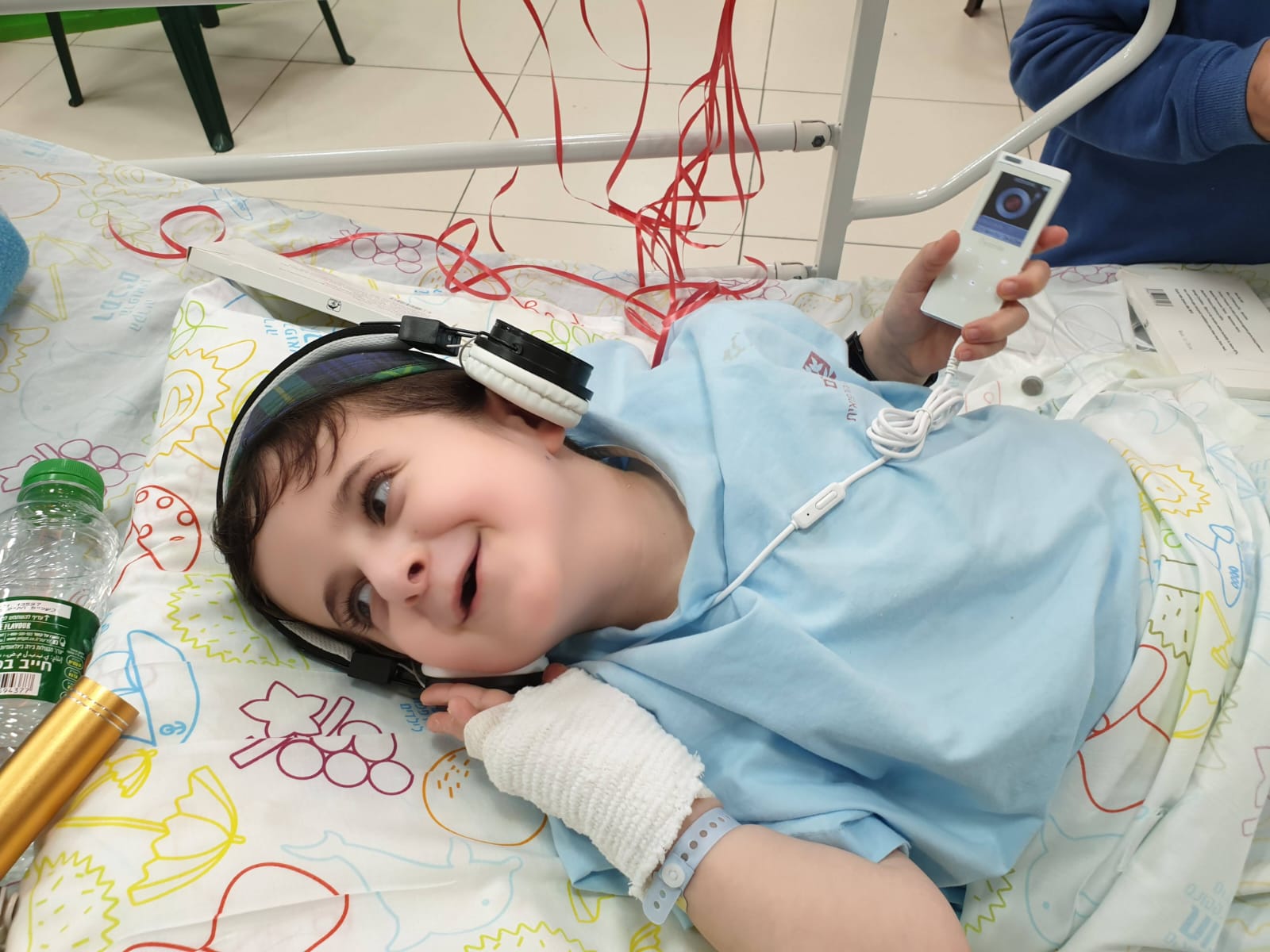
Before concluding, Nisi recalls the moment with the doctor after Israel's birth when they learned about the severe illness. "I think that even then, we made the most critical decision in caring for Israel," she emphasizes. "We decided not to be sad or resent our fate but to see the good and rejoice in it. Today, we live without knowing what the future holds, but we want to live and experience this life, choosing joy in the process.
"There’s this notion that when a 'special child' is born into a family, life stops, centering only on him," adds Nisi. "But for us, when our Israel was born, life didn’t stop—on the contrary, that’s when we began living. We discovered inner strength, and with each fracture, we became stronger with Israel along this journey. While Israel receives medication meant to help him and has undergone surgeries to straighten and pin the legs, these treatments don’t cure the disease; for true healing, a supernatural miracle is needed. But to be happy, no miracle is needed—just the choice to live joyous. That’s our guiding principle, and we pray it continues to guide us."
